(NOTE : This article was updated to correct a reference to a study, commissioned by the Austrian Agency of Health and carried out by Veterinary University of Vienna, on the health hazards of GM food from 2008, which is outdated)
As per a recently released research report by Centre for Science and Environment (CSE), 32% of the 65 food products (80% of which were imported) tested were found to have genetically modified ingredients. Following this, Greenpeace India in collaboration with the India for Safe Food coalition members and allies assembled at the Food Safety and Standards Authority of India (FSSAI) office premises in Delhi on August 7th, 2018.
Shockingly, most of the products with GM contamination did not have any warnings or labels of containing GM ingredients. What’s worse is that few products carried claims of being GM-free. Existing scientific evidence from all over the world clearly indicate crippling socio-economic, and environmental risks from GM food consumption.
The coalition presented the following demands in front of the FSSAI Chairperson:
- Removal of the 21 brands of food products that tested positive for GM presence from retail outlets as well as warehouses of importers.
- Initiating penal action against manufacturers, importers and distributors of the food products as per the Food Safety and Standards Act, 2006.
- Ensuring required thresholds on GM food to the tune of 0.01% allowing for only adventitious/unavoidable presence, beyond which labeling has to be mandatory
- Making testing facilities accessible for common public to get GM food testing one for free
- Strengthening the surveillance and detection system with regard to illegal GM imports, stopping it at its source, activating international protocols like the Cartagena Biosafety Protocol.
Why #StopGMFood movement matters?
The truth is the only transgenic crop which meets regulatory standards in India is Transgenic Cotton. The other two GM crops – both edible Bt Brinjal and GM Mustard – never saw the light of day for public consumption, owing to health and safety concerns. In 2011, FSSAI had set parameters for cottonseed oil and cottonseed flour and allowed its use in Vanaspati. Astonishingly, it did not put in place a system to ensure the source of that cotton. The result being that GM food products might have found a way into our food chain without our knowledge.
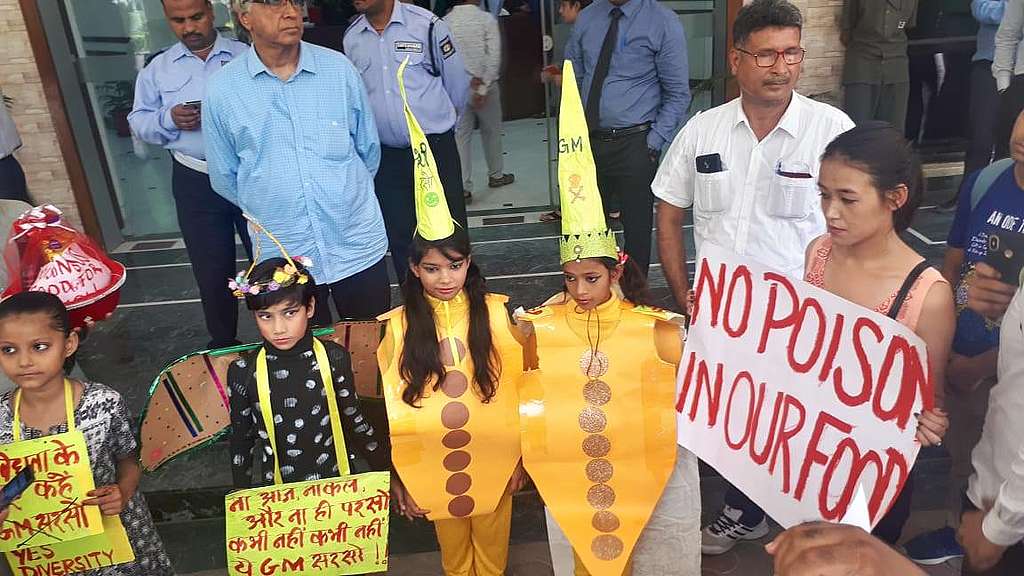
Children join the #StopGMFood protest in Delhi on August 7th, 2018.
GM crops are a consequence of enormous time and financial investment. Obviously then, the corporations producing them want to make good profit and thereby create patents to safeguard their financial stronghold. The farmers, on the other hand, are at high risk and also most vulnerable. They grow crops with an expectation of getting good yield. However, if India becomes too dependent on foreign seeds, patent enforcement and insertion of a “suicide gene” into a modified plant may cause crop to grow for one season but at the cost of seeds which are unable to germinate. This will put additional economic burden on the already poor farmer to purchase new seeds every season. Additionally, the end consumer (i.e. you) will have to pay more to procure their food. Thus, maintaining the counterproductive vicious cycle.
Secondly, it is a misnomer that GM crops eliminate the use of pesticides. GM crops provide resistance to one particular pest (refer to the recent pink bollworm infestation problem) and as such its use has not been very effective in curbing the rampant pesticide use in many parts of the country, thereby deteriorating the soil quality further. Then again with the added cost of the seeds, and the financial costs incurred by the farmer to procure pesticides further pushes the farmer into the clutches of poverty.
Our body is an ecosystem. With every meal we eat, we influence the diverse microbial flora inside us and the ringmaster of it all, the intestine. Eating GM food puts unfathomable risk on our health. If the CSE report is to be believed, even infant milk substitutes for lactose intolerant babies (Isomil) have not been spared. How can FSSAI still sit quietly?
Solution is already available.
Indigenous organic food provides a good alternative and that is what was presented to the FSSAI chairman as a gift. Ironically, organic food needs labeling while GM food products are blatantly being produced, (illegally) imported and consumed by unsuspecting consumers. Why is the Government so lackadaisical in enforcing regulation on corporations and producers remains unanswered.
This protest was a wake up call for FSSAI, the food safety and standards regulator. Despite having a legal mechanism in our country in the form of FSSAI Act, 2006, current findings show poor implementation. FSSAI has failed to curb illegal GM food imports, allowed food labelling to fall short and basically provide safe food to the citizens of India. FSSAI’s response to this protest has been unsatisfactory. As citizens, we are worried and concerned by the lack of action by FSSAI.
If France and Germany can apply a threshold of 0.1% for GM detection, how can India remain complacent with citizen’s health? Lab testing allows for precise detection of upto 0.01% of GM contamination then what is stopping FSSAI cannot to do its own food tests? It cannot cite the cost of testing as the main reason for such a high penetration of GM food (way above threshold of 5%) when it comes to labelling regulations.
One of India’s competitive advantages is its demographic dividend, the question here is – are we going to realize the benefits of demographic dividend with a debilitating sick population?
Devahuti Deka is a Delhi-based volunteer-activist with Greenpeace India.
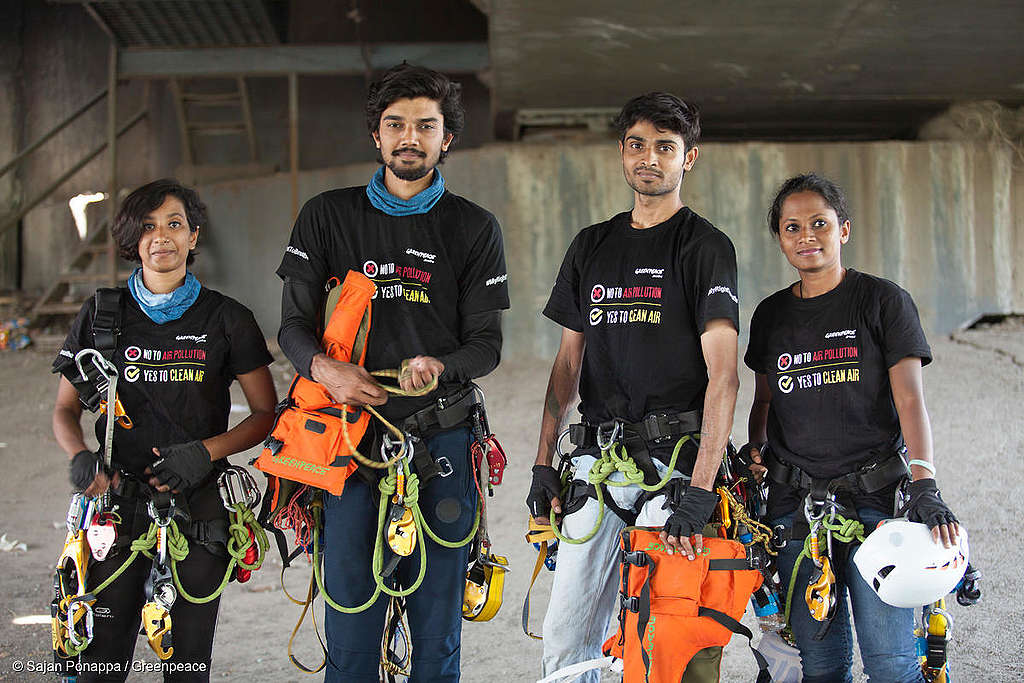
This fragile Earth deserves a voice. It needs solutions. It needs change. It needs you.
Get Involved
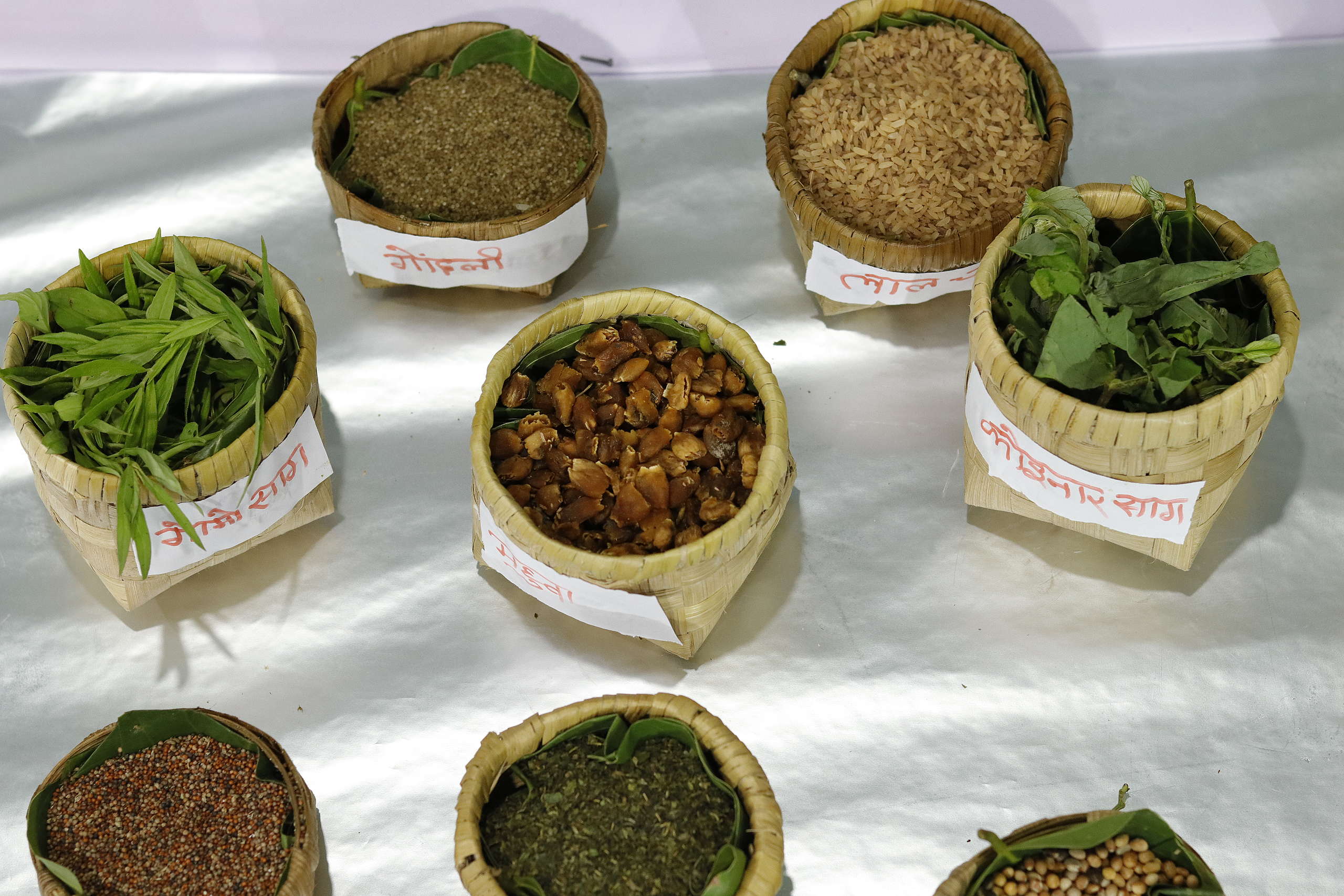
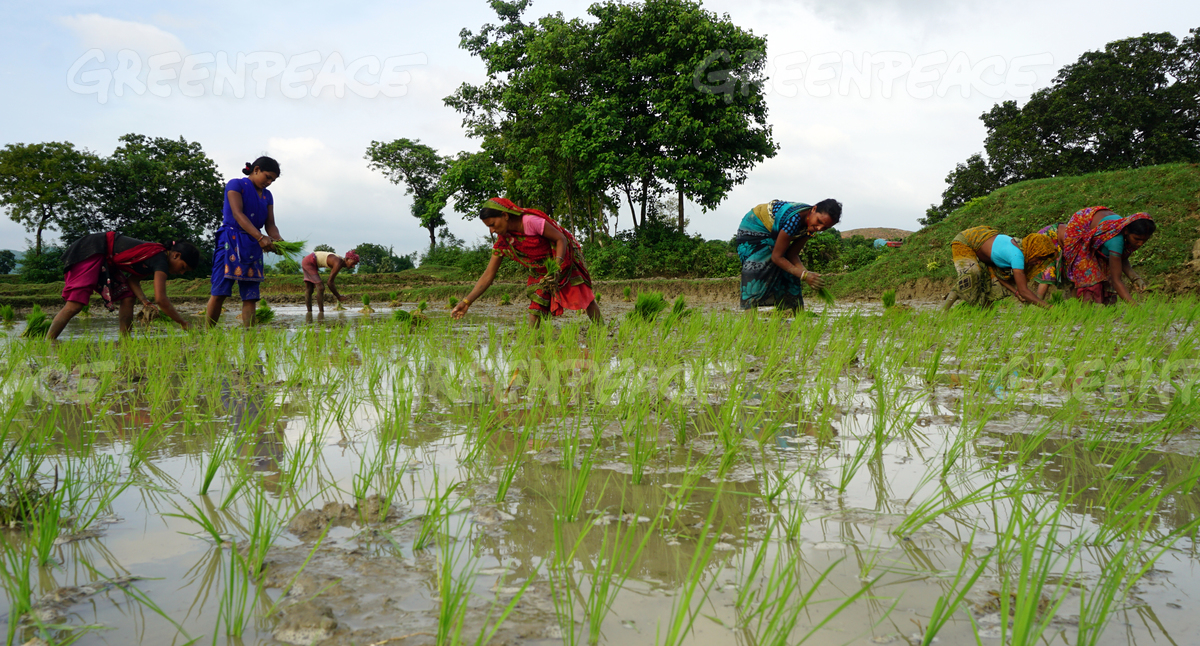
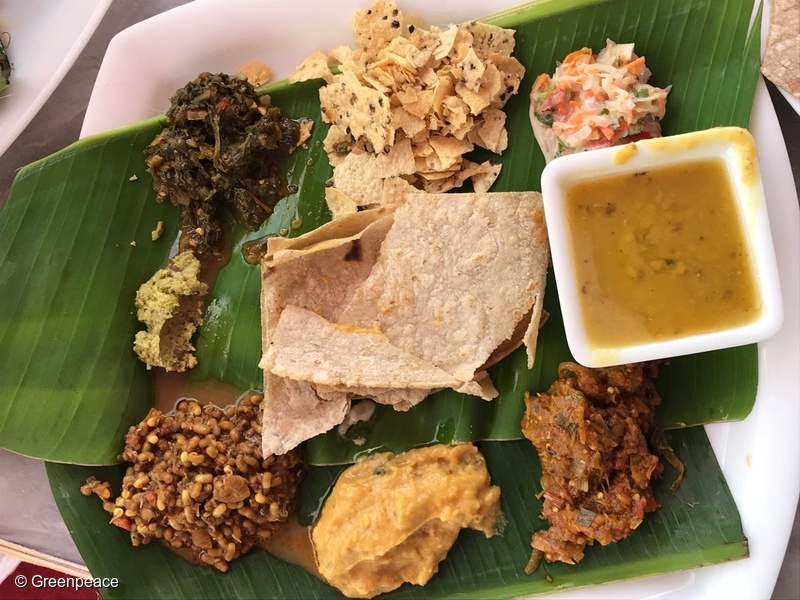
Discussion
We are against GM foods . Enforce the food rules vigorously. Make testing facilities available in every city .
Thank you for bringing the true picture of the status of this GM food poison in our country .
Very informative article... especially for those who are concerned about the food served in our plates and scope of growth with pounding challenges for our farmers.